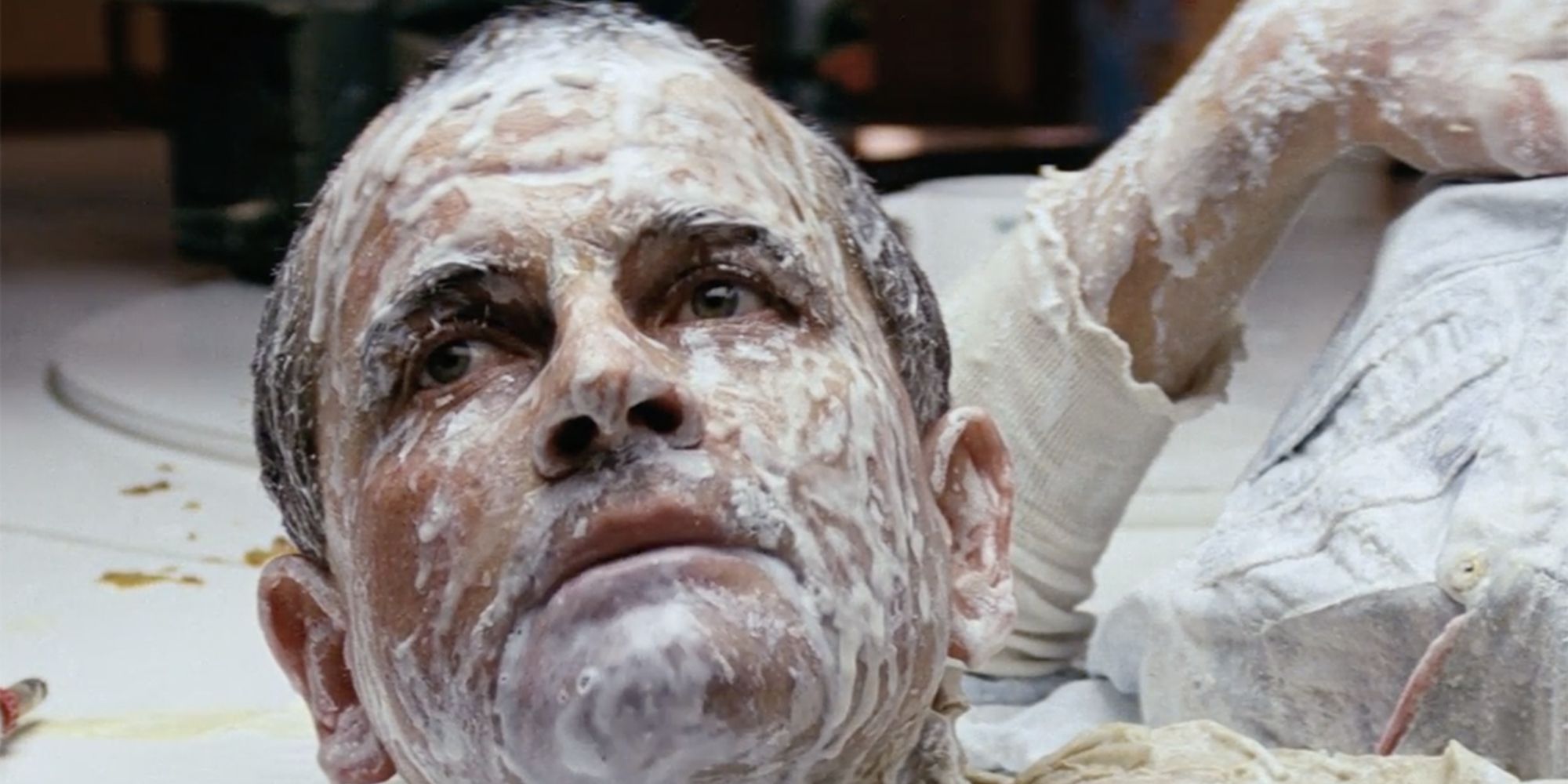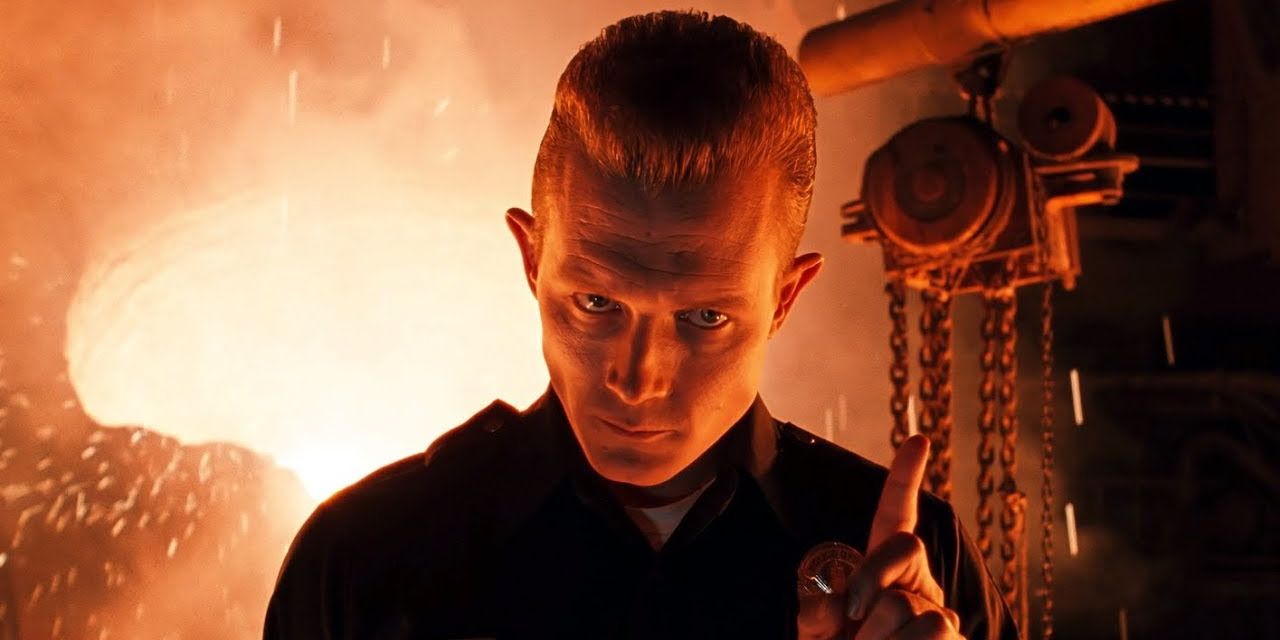As machinery and AI improves, the ability to create something that perfectly mimics organic life looms large over the possible future. A perfect mechanical facsimile of humanity raises a ton of challenging questions. One of the most aggressive ways to raise those questions is to introduce a character as a human and suddenly reveal their true identity.
The classic "person isn't actually human" twist takes many forms. Magical shape-shifters, malevolent body snatchers, and all manner of things wearing a fresh set of human skin make blending in part of their gimmick. But, when the thing masquerading as a human turns out to be a machine, there's a wide variety of directions that the story can go.
This trope is entirely self-explanatory. There's a robot, android, or artificial intelligence that somehow takes the guise of a mild-mannered human being. Sometimes they're a dangerous killing machine that uses their ability to blend in to get closer to their targets. Sometimes they're a helpful service android that is designed to resemble humans to make them more visually appealing. Sometimes they have hidden intentions beyond the comprehension of the people they resemble. There's almost always a big reveal, but the level of surprise can vary. It could be a world-shattering reveal that destroys everyone who hears about it or a weird diversion that's mostly for the audience's benefit. Most other forms of things pretending to be human tend toward evil, but secret robots can be good-natured, malicious, or even curious.
One of the earliest examples of a character being shockingly revealed to be a robot came in E. T. A. Hoffman's 1816 novel The Sandman. The robot in question is Olimpia, a young woman who becomes the object of the protagonist's romantic obsession. She's a bewitchingly beautiful lady, and her presence in the main character Nathanael's life is sudden and substantial. Nathanael has been spending his days stalking a man he believes is responsible for the death of his father, but as he encounters Olimpia, he devotes his energy to courting her. Unfortunately for Nathanael, Olimpia is a carefully crafted clockwork automaton. Learning that he's fallen in love with a machine drives Nate mad immediately, so he attempts murder and commits suicide. This is a fairly extreme response, but it's not altogether uncommon as big robotic reveals go.
One of the most iconic robot reveals was in Ridley Scott's iconic 1979 film Alien. The crew of the Nostromo is essentially a handful of space-faring truckers and mechanics, given enigmatic orders by the immensely questionable Company. The ship is operated by an artificial intelligence named Mother who offers largely unhelpful guidance on behalf of Weyland-Yutani. One of the crew members, the ship's science officer Ash, has a bizarre demeanor that doesn't stick out at first. He never seems bothered by anything, he's rarely seen participating in the crew's good-natured banter, and his actions seem to follow an entirely separate logic. The big reveal near the film's third act is that Ash is an android, under orders from Weyland-Yutani to capture the eponymous alien alive. The reveal isn't just horrifying due to the idea of a coworker secretly sabotaging the crew in a life or death situation, it's also a deeply nightmarish image. Ash's white milky blood and the dismembered corpse have become some of the most iconic moments of the film.
The secret robot concept has been the underpinning of the entire Terminator franchise, though it's never really worked as intended. The audience always knows the Terminator's true form, but it's a surprise to the characters, at least in the first couple of entries. The idea of the T-800 hiding in plain sight borders on laughable. The T-1000 has a better pitch, but after the first act, it keeps its compromised Robert Patrick form for most of the film. The idea that any person that the hero encounters could be a powerful murder machine wearing a set of skin to blend in is perhaps the most horrific aspect of the franchise. However, Terminator hasn't really been a horror series since its first entry, but robots pretending to be human beings is still often the thrust of the material.
Robots that perfectly mimic human beings continue to be a nightmarish future possibility that underpins a ton of sci-fi horror. Machines can be heroes or villains, and even the idea of disguising their identity with a set of human skin and features doesn't guarantee a specific role in the story. For the most part, robots are what people make them, and that allows for a ton of variety in science fiction stories. Some of these characters even challenge the audience's perception of what it means to be human, to begin with. Just because someone bleeds a different color, doesn't mean they aren't a person, but not every thing that looks like a person is decent.



